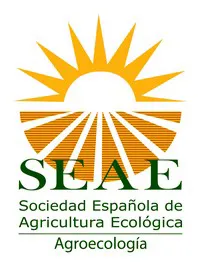The European Commission has eventually announced the postponement of the entry into force of the new European regulation by one year, until January 2022. It is not a final decision, as this proposal must also be approved by the Council and Parliament, although it is expected that this postponement will be accepted without further amendments. Furthermore, the Commission has reported that the next EU Green Action Plan is open for public consultation (open until 27 November). This announcement has been received with satisfaction by the European organic agriculture and food movement, represented by IFOAM Organics Europe and of which the Spanish Society for Organic Agriculture / Agroecology (SEAE) is a member.
The new organic regulation will entail the adoption of numerous delegated acts and implementing measures to specify the technical standards linked, for example, to organic production standards, group certification or the organic control system. Despite the hard work of the Commission and the Member States, sources from the European ecological movement point out that “many of these technical requirements still have to be debated and adopted by the Member States, leaving in the best of cases, only a few weeks for organic operators to adapt to the new standards and for organic certifiers to be accredited based on these new rules.”
According to IFOAM Organics Europe, "more time needs to be given to institutions to finalize discussions on this complex set of secondary legislation to ensure the quality and applicability of future rules."
Regarding the Action Plan, Jan Plagge, President of IFOAM Organics Europe, says that “a new EU action plan for organic farming is crucial to make Europe more organic. This action plan should live up to the targets set out by the 'Biodiversity and Farm-to-Fork Strategies': to achieve 25% organic land in the EU by 2030, with time-bound targets, an adequate budget and a real influence on the national strategic plans of the CAP.” Plagge also says that "we already welcome the Commission's plans to allocate a budget of € 40 million to organic farming as part of the promotion policy in 2021."
The SEAE also celebrates this postponement, "since it will allow the sector to prepare to comply with the new regulatory framework with the necessary conditions and guarantees," they say. "The new regulation introduces very innovative aspects in many areas and having guides or recommendations could help in its enforcement."
 For more information:
For more information:
Spanish Society for Organic Agriculture / Agroecology (SEAE)
Camí del Port, km1, s/n. Apdo. 397 E-46470, Catarroja, Valencia. Spain
Tel.: +34 96 126 71 22
seae@agroecologia.net
www.agroecologia.net
